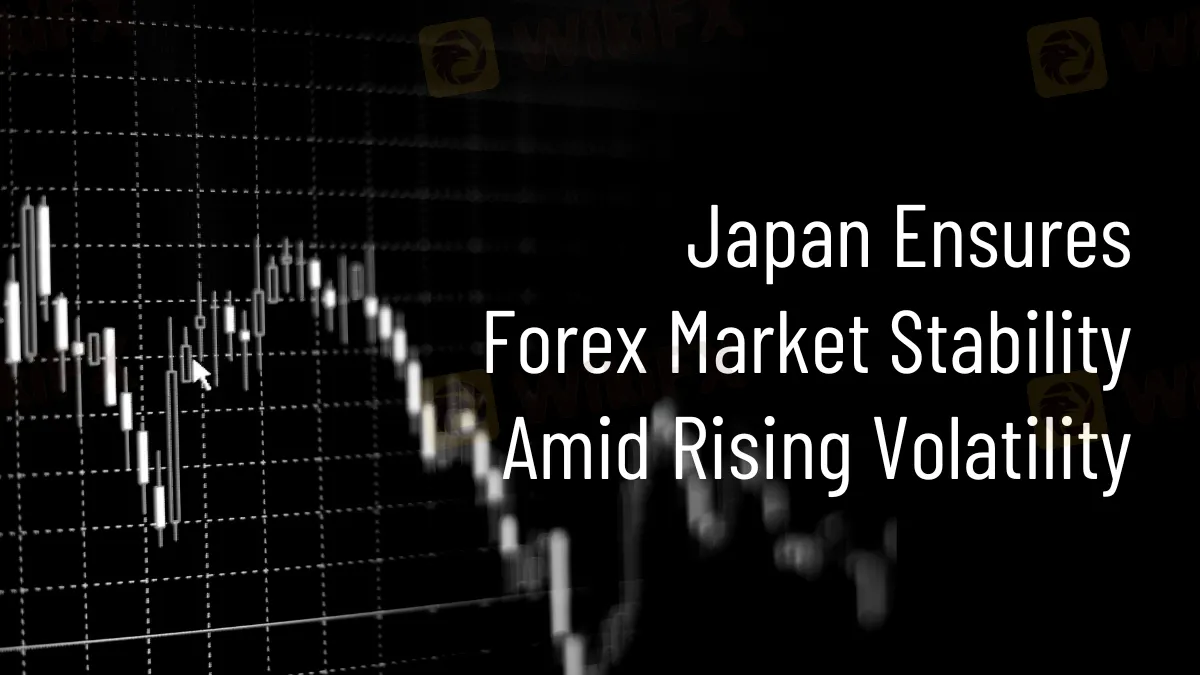WikiFX Invitation Rewards Program
Invite friends and earn points, the more you invite, the more you earn!
简体中文
繁體中文
English
Pусский
日本語
ภาษาไทย
Tiếng Việt
Bahasa Indonesia
Español
हिन्दी
Filippiiniläinen
Français
Deutsch
Português
Türkçe
한국어
العربية
Abstract:Japan monitors forex market volatility closely, ensuring stability and addressing speculative concerns while reaffirming commitment to monetary easing and preparing for G20 cryptocurrency discussions.

Japan's top currency official has raised alarm over the currency market's heightened volatility over the last week. Masatsugu Asakawa, Vice Finance Minister for International Affairs, highlighted the need to monitor any speculative actions causing this turbulence closely.
Asakawa spoke with reporters on Monday after regularly meeting with Bank of Japan and Financial Services Agency officials. The conference was called to address recent changes in the financial markets. Asakawa emphasized the need to preserve market stability, particularly given the market's heightened sensitivity to any hints of policy shift.
The dollar fell sharply on Friday, reaching a 4.5-month low of 108.28 yen. This fall came after BOJ Governor Haruhiko Kuroda's remarks, which suggested that the central bank was getting close to meeting its inflation objective. These comments prompted concern that the BOJ's huge stimulus package may be phased off shortly. However, the yen's gains were eventually reversed as a BOJ official explained that Kuroda's remarks only restated the central bank's established position.
The market's response demonstrated its sensitivity to signals that the BOJ may change its monetary policy. Asakawa reiterated the G7 and G20 agreement on competitive currency devaluation, emphasizing that targeting currencies for competitive goals or permitting excessive volatility would harm the economy.
He said, “We restated the G7/G20 agreement that we oppose competitive currency depreciation and do not target currencies for the purpose of competitiveness. Excess volatility and disruptive movements would harm the economy.”
During the meeting, it was also highlighted that the BOJ remains committed to its monetary easing measures to fulfill its aim of 2% price stability. Asakawa reaffirmed Kuroda's comments from Davos, reaffirming the central bank's commitment to monetary easing until the inflation objective is reached.
Asakawa noted that the forthcoming Group of 20 financial leaders conference in Buenos Aires in March will likely include bitcoin talks. He said Japan plans to deal with this problem responsibly, realizing the rising worldwide interest in digital currencies. “This issue will probably be on the agenda in Argentina, so Japan is preparing to respond appropriately,” said the official. “Given that various people are talking about this subject, the chance will be high.”

Disclaimer:
The views in this article only represent the author's personal views, and do not constitute investment advice on this platform. This platform does not guarantee the accuracy, completeness and timeliness of the information in the article, and will not be liable for any loss caused by the use of or reliance on the information in the article.

Invite friends and earn points, the more you invite, the more you earn!

When a trading company like Dbinvesting shows up and says it's an experienced partner with great deals like high leverage up to 1:1000 and different account types, it gets people's attention. But this appeal gets clouded by more and more serious complaints from users. This creates a big problem for people thinking about investing. The main question that needs a clear answer based on facts is: Is Dbinvesting legit, or is it a clever scam that could cause you to lose a lot of capital? This investigation wants to give you that answer. We will look past the company's marketing claims to study facts we can check. Our study will carefully look at the main worries: Is Dbinvesting watched over by a trustworthy authority? What are the real, honest experiences of people who used it? Are the many reports about withdrawal problems and Dbinvesting scam claims believable? To do this, we will use solid data from third-party checking services, such as WikiFX, including their complete regulatory check

An Honest First Look When checking out a forex broker, the main question is always about trust: "Is Dbinvesting a safe place for my investments?" This review answers that question directly. Dbinvesting says it's an experienced broker that offers the popular MT5 platform, different account options, and access to worldwide markets. But as we look closer, we find a very different story. Our research found serious warning signs, especially its weak overseas regulation and a very low trust score from independent reviewers. This review gives you a short summary of what we found, comparing what the broker promises with the serious problems shown by real data and lots of user feedback. We want to give you a clear, fact-based answer to help you understand the major risks before investing. The difference between what it promises and what users actually report is the main focus of our investigation.

Regulators are scrutinizing prediction markets as brokers add crypto assets to their platforms. Is innovation outpacing compliance?
